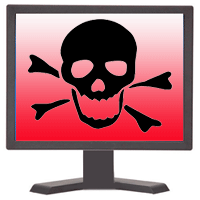 Spyware removal has become a tedious work. As the spyware threat has worsened, a number of techniques have emerged to counteract it. Among these are
Spyware removal has become a tedious work. As the spyware threat has worsened, a number of techniques have emerged to counteract it. Among these are
• Programs designed to remove or to block unwanted programs
• Eucating the users in such a way that they can keep bad programs from infecting their computer
• User practices which reduce the chance of any software sneaking their way into your computer.
Information gather software remains a costly problem even with all new technology used to combat them. If a large number of spyware programs have infected a Windows computer, the only way to save the computer may be to back up user data, and fully reinstalling the operating system.
Anti-spyware Programs
One of the markets most popular programs, Adwarealert will help you find and ultimately rid your computer of unwanted software.
Many programmers and some commercial firms have released products designed to remove or block spyware. Steve Gibson's OptOut, , practially invented a growing category. Programs such as,
• Adwarealert
• Lavasoft's Ad-Aware SE
• Patrick Kolla's Spybot - Search & Destroy
Rapidly gained popularity as effective tools to remove, and in some cases intercept, badly behavied programs.
Recently Microsoft bought the GIANT Anti-Spyware software, renaming it as Windows AntiSpyware beta and releasing it as a free download for Windows XP, Windows 2000, and Windows 2003 users. The renamed software for now exists as a time-limited beta test product that will expire at the end of July 2006. Microsoft is continuously developing and updating this product.
Protection and removal
Major anti-virus firms such as Symantec, McAfee and Sophos have come later to the table, adding anti-spyware features to their existing anti-virus products.
In the beginning, anti-virus firms did not want to add functions that was connected to other forms of threats then virus, citing lawsuits brought by software authors against the authors of web sites and programs which described their products as "spyware".
However, recent versions of these major firm’s home and business anti-virus products do include anti-spyware functions. The malware, adware type of software is treated differently from viruses though.
Symantec Anti-Virus, for instance, categorizes all kinds of malware as "extended threats" and now offers real-time protection from them (as it does for viruses). The drawback with these programs is that they are very complex and in many cases produce more hurdles to jump over then you as a user really need.
All protection software requires a frequently-updated database of threats. As new threats are released, the protection software developers discover and evaluate them, making "signatures" or "definitions" which allow the software to detect and remove the ofending software.
If a threatening program is not blocked and manages to get itself installed, it may resist attempts to terminate or uninstall it. Some programs work together: when an threat scanner (or the user) terminates one running process, the other one starts up the killed program again, making it virtually impossible to clean the computer.
Some malware will detect attempts to remove registry keys during the spyware removal and immediately add them again. Usually, booting the infected computer in safe mode allows an anti-spyware program a better chance of removing persistent programs.
The most extreme way of cleaning is to move the hard drive to another computer, boot on the normal boot disk that computer has, and then clean the infected disk. You can also mount the infected disk over the local network and scan & clean it to remove as much spyware as possible.
It doesn’t matter what way you choose to clean your computer, but using a good malware removal program will make your life much easier …
By: Kenth Nasstrom
Check Out the Related Article : Why Increase Computer Memory
How to remove Spyware

Other Topic
Click Here to Know How you can Link Exchange with Me









0 comments:
Post a Comment